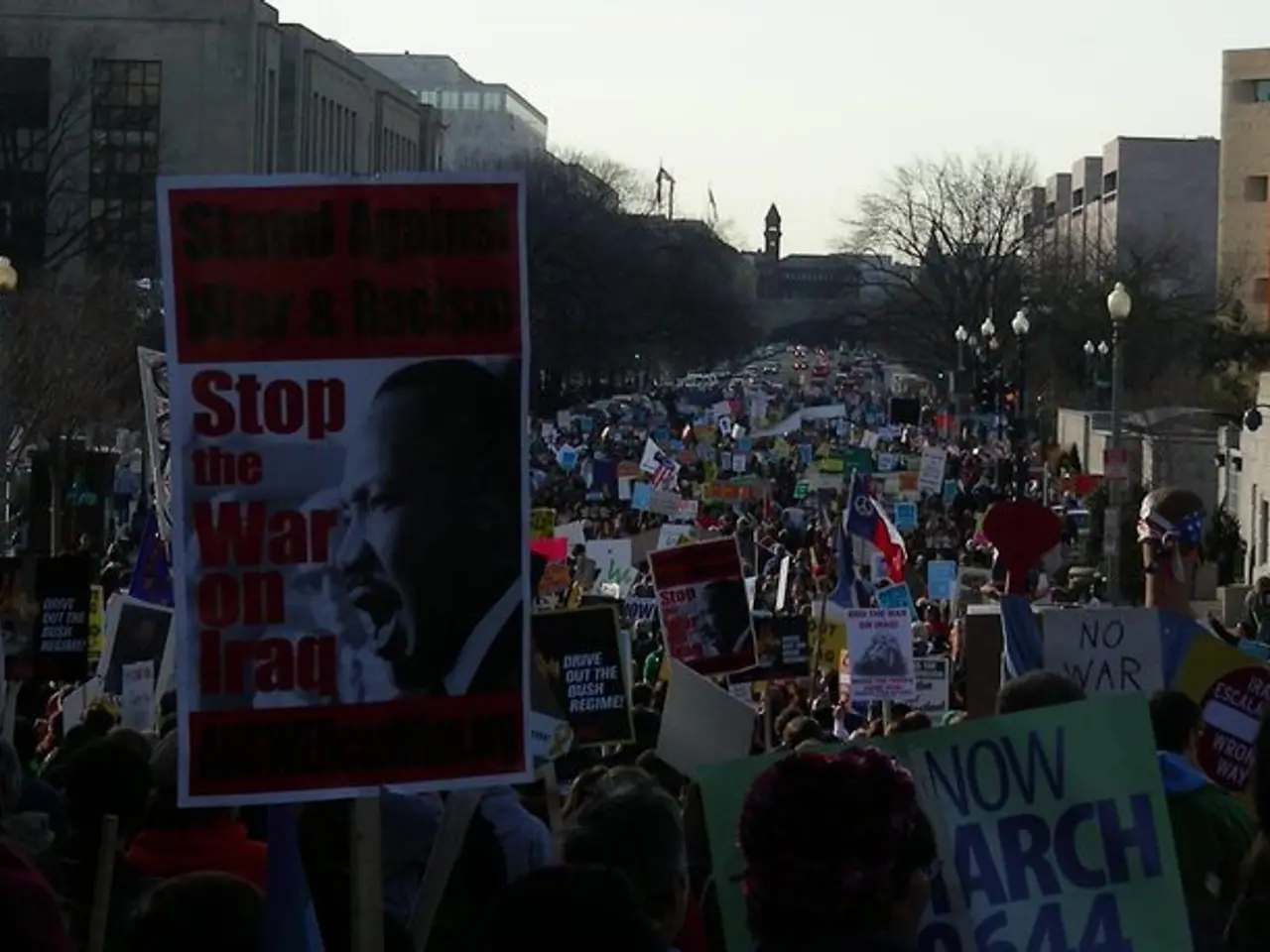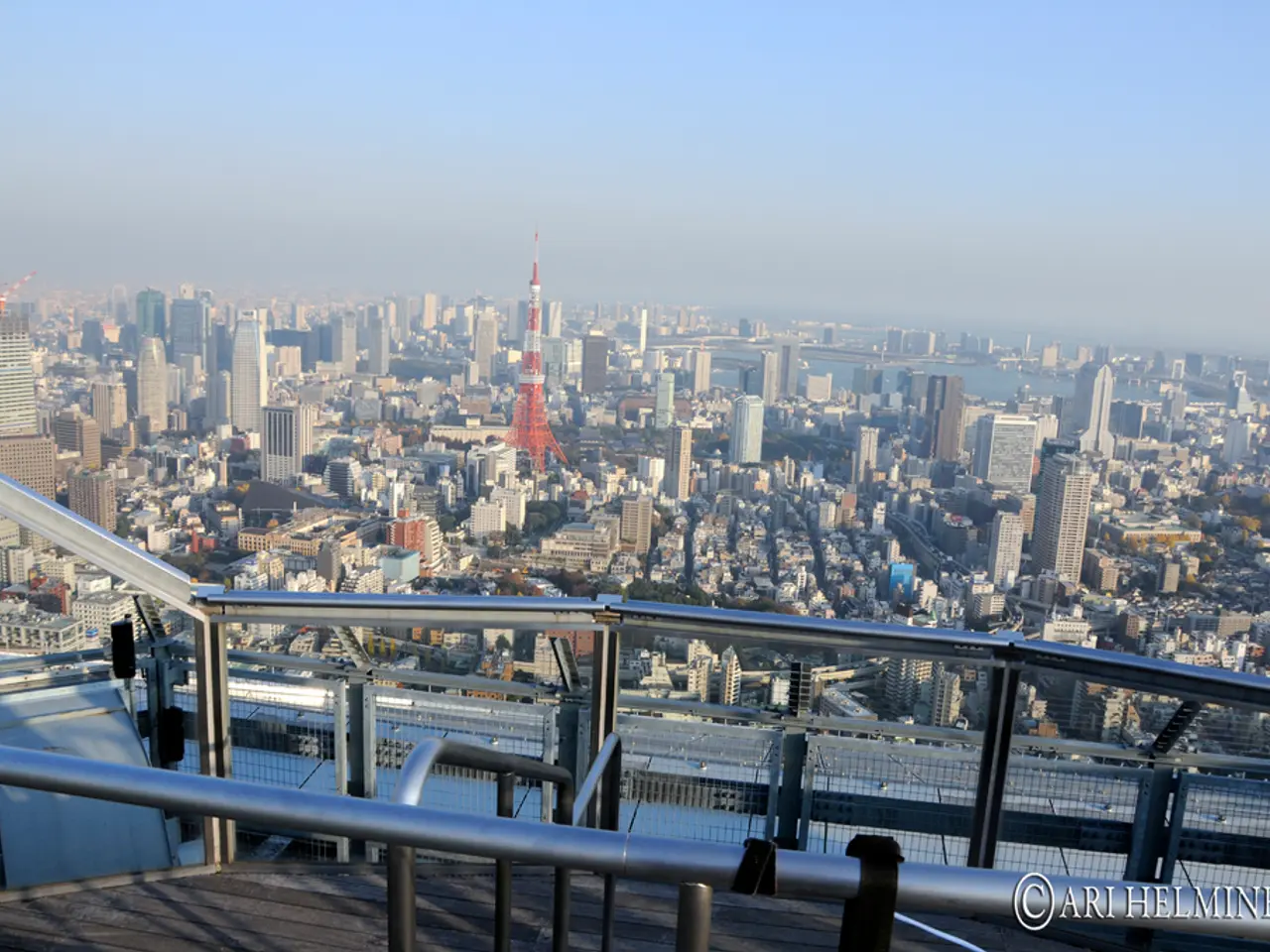International outcry following anti-gentrification demonstrations in Mexico City's heart, CDMX
In the heart of Mexico City, a protest against rising rents, displacement, and the influx of foreign residents has sparked a polarized global reaction. The July 4th anti-gentrification demonstration, which occurred on U.S. Independence Day, has received international scrutiny, with some foreign commentators sympathizing with the demonstrators while others have interpreted the protest as xenophobic or hostile.
The event, which was explicitly framed as a stand against "American imperialism" and gentrification, saw slogans like “gringo go home” and demands to curb short-term rentals and tax foreigners. Although the march was mostly peaceful, some demonstrators later engaged in violence, breaking windows and vandalizing businesses, including a bank, a popular taco chain, and Starbucks. Protesters also harassed both foreign and Mexican patrons at cafes.
The Mexico City Anti-Gentrification Front, the organizers of the protest, emphasized that the event was not xenophobic but rather a response to government failures to regulate housing and development in favour of locals. Their demands included stricter rent controls, ensuring local residents have a voice in development projects, stronger tenant protections, and prioritizing Mexican renters over foreigners.
The protest has resonated beyond its borders, reflecting deeper societal tensions related to inequality, mass tourism, and gentrification, similar to movements seen in Europe. Mexico’s president, Claudia Sheinbaum, has condemned the protest’s violent and xenophobic aspects but acknowledged the underlying problems of inequality and housing affordability.
In response to the demonstrations, Mexico City authorities have unveiled a plan aimed at tackling gentrification. This includes regulating rent increases by capping them to inflation and opening public discussions to create laws that promote affordable housing for locals. The government’s approach also seeks to address the consequences of actively promoting the city as a destination for digital nomads.
The event has highlighted the growing conflict between globalization-driven urban change and local communities' rights and identities in Mexico City. Critics argue that Mexico's failure to regulate housing markets and protect tenants has allowed gentrification to spiral unchecked. Protesters carried signs reading "Gentrification is urban colonialism" and "It's not tourism if it displaces us."
As the footage of the protest continues to circulate globally, the debate about urban policy and inequality in Mexico is far from over. The Mexican government has yet to issue a formal response to the protest, but the discussions it has ignited will undoubtedly shape the city's future.
- The protest against rising rents and gentrification in Mexico City, despite being criticized as xenophobic by some, is deeply rooted in the demand for stricter rent controls, ensuring local residents have a voice in development projects, stronger tenant protections, and prioritizing Mexican renters over foreigners.
- The event's aftermath, marked by vandalism and violence, has linked the issue of gentrification to broader discussions of urban policy and inequality in Mexico, with some arguing that the government's failure to regulate housing markets and protect tenants has allowed gentrification to spiral unchecked, leading to local communities' rights and identities being compromised.




